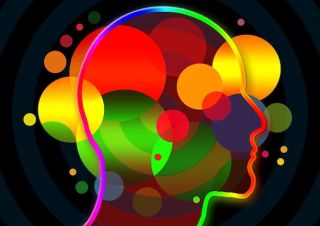KEY POINTS-
- Perception and cognition are more integrated than previously thought, a concept mirrored in AI advancements.
- AI technologies, like sensors and augmented reality, extend and refine human sensory and cognitive functions.
- Large language models can serve as cognitive enhancers.
- AI's ability to process multimodal information enriches human-machine collaboration.

Traditionally, perception and cognition have been considered distinct domains of psychological science. Perception was understood to be the raw data collector—our sensory touchpoint with the external world—while cognition was the sophisticated processor that interpreted these data. However, some fascinating research is challenging these delineated roles, suggesting that top-down cognitive processes also influence our so-called "basic" perceptual mechanisms.
In other words, our sensory input may be directly informed by cognition and suggest a more "integrated" processing between sensing and cognitive processing. Interestingly, this perspective aligns with advancements in artificial intelligence, which are blurring the lines between perception and cognition, potentially facilitating a more integrated, fluid experience of reality.
Cognitive-Perceptual Interplay: Reframing Sensory Limitations
The limitations of human sensory faculties—be it the visual spectrum we can perceive or the range of frequencies we can hear—are well documented. Yet, as this review article suggests, these so-called "basic" perceptual processes are far from rudimentary. They appear to be influenced by higher cognitive functions that can alter how and what we perceive. AI technologies, such as advanced sensor technology, AI-assisted image and sound recognition, and augmented reality, are amplifying this cognitive-perceptual interplay, extending not just our sensory reach but also the sophistication with which we interpret sensory data.
Enhanced Cognitive Capacity: AI as a Cognitive Amplifier
Human cognition has its own set of limitations defined by factors like neural processing speed and attention span. AI, especially in the form of large language models, is turning out to be a powerful cognitive enhancer. It can sift through massive datasets and unearth complex patterns far beyond the reach of human analysis.
This aligns with the newer understanding that even our most basic sensory perceptions can be "smart" and influenced by higher-level cognitive processes. Thus, AI doesn't just augment human capabilities; it intertwines with our newly understood cognitive-perceptual continuum, enriching both.
Multimodal Symbiosis: Cognitive Orchestration
The adaptability of AI in processing multimodal information—text, images, sound, etc.—creates a new form of cognitive symphony. This isn't just about layering perception on top of cognition or vice versa. It's about a fundamentally intertwined relationship where each influences and is influenced by the other. This reflects some of the scientific insights into the cognitive-perceptual continuum of the human brain, adding a layer of richness and depth to human-machine collaboration.
The Horizon: Toward a Cognitive-Perceptual Interplay
The blending of perception and cognition, amplified by the power of AI, heralds a fascinating perspective on human capability. Far from diluting the uniqueness of human cognition, AI serves to enrich it, taking what is already a nuanced interplay of sensory and cognitive functions and elevating it to new heights. As we venture further into this uncharted territory, the potential for discovery and understanding seems driven by a "cognitive manifest destiny" combined with a healthy dose of "buyer beware." Nevertheless, boundaries of understanding are being redrawn from the sharpened pencils of humankind and the vibrant pixels of technology.


